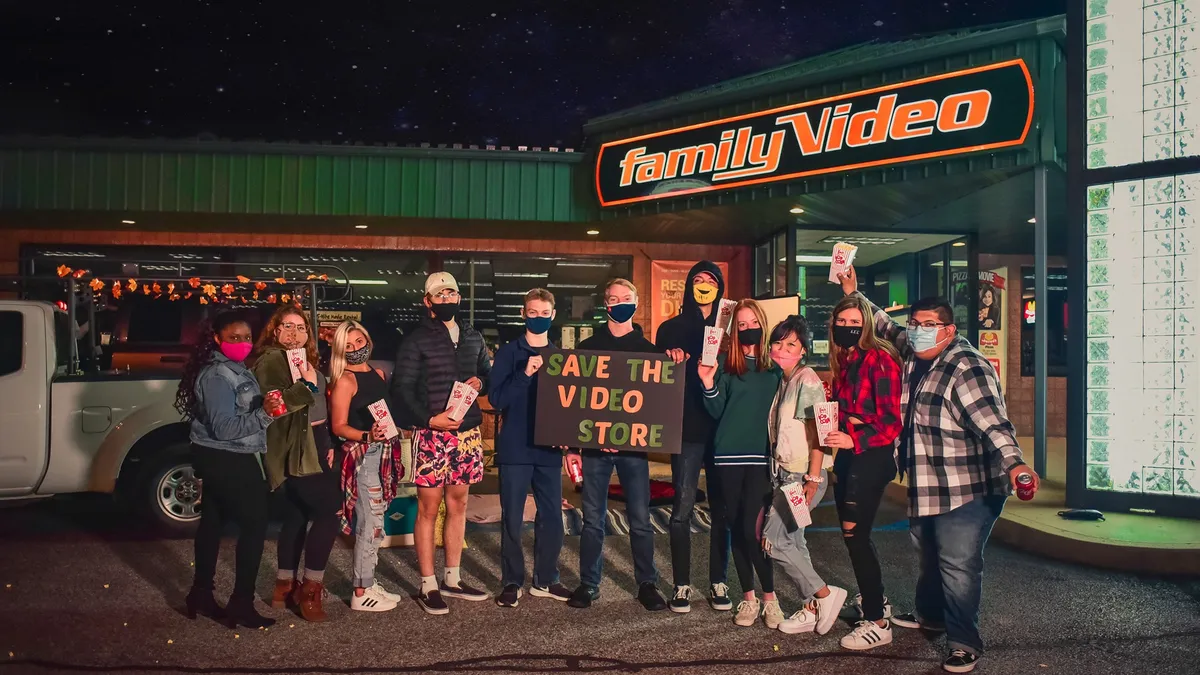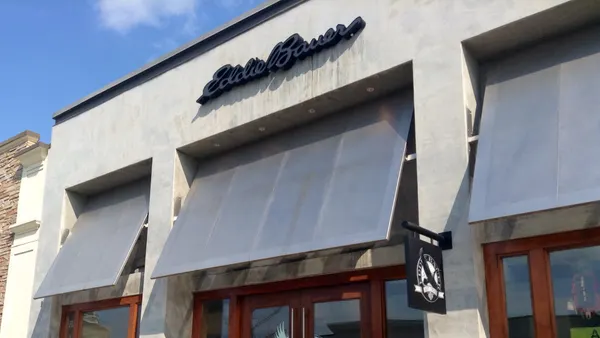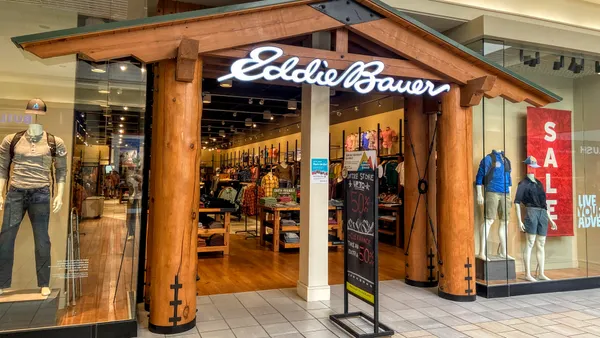Dive Brief:
- Family Video is closing all of its remaining stores after foot traffic declines and the lack of new movie releases "pushed us to the end of an era," President Keith Hoogland said in a statement.
- The company said on its website that the last day for movie rental was Jan. 6 while stores would remain open until all products are sold. Its website, www.FamilyVideo.com, will stay open and sell branded merchandise and other products.
- As it managed disruption from the pandemic, Family Video, the last major video rental chain, closed roughly half of its footprint in 2020 as sales declines took their toll.
Dive Insight:
Family Video survived all of its peers, growing even in years following the collapse of other major video chains such as Blockbuster, Movie Gallery and Hollywood Video. That it survived until now was a testament to the company's pluck and model. But in recent years, it had ceded stores and square footage as the drift to other forms of home video viewing caught up with it.
"Family Video has been a very impressive business for many years, and its closure now feels momentous," Daniel Herbert, an associate professor at the University of Michigan's film, television and media department, said in an email Tuesday. "With the closure of the last major video store chain, an era really has come to a close. In many ways it is surprising it lasted as long as it did."
Family Video's history traces back to 1946, when Clarence Hoogland founded the distribution business Midstates Appliance & Supply Company. Clarence Hoogland's son Charlie Hoogland (Keith Hoogland's father) took the company into the video rental business after it was left with an oversupply of videos that were, in those days, priced too high for most customers to purchase outright.
"Surviving 10 years longer than the big 3, Blockbuster, Movie Gallery and Hollywood Video, we were among the few that started with Beta, moved on to VHS and remained a part of the DVD & Blu-Ray Era," Keith Hoogland said in a statement.
Family Video has long credited its durability to the decision to own most of the real estate for its stores, rather than renting it. That saved it rental costs while other video stores struggled, and provided additional sources of revenue and the ability to trade out video store space for other businesses the parent company, Highland Ventures, owned.
The company started 2020 with more than 500 stores, down from its peak of 800 locations. While the video store chain served areas and demographics that still valued the rental model, the digitization of video of course posed a long-term existential challenge for the retailer. As Derek Dye, senior brand manager at Highland Ventures, told Retail Dive in a November interview, "Gen Z is a tough market to get into a video store."
The COVID-19 crisis took a major toll on the company, forcing it to pare down to 250 stores in the latter part of the year. Dye said that the pandemic's disruption to Hollywood movie releases was the largest challenge of the year, even greater to the virus's effect on foot traffic.
"There was a five-month gap when we were just getting B-movie after B-movie, straight-to-DVD type stuff. It's a hard sell right now to come into our store during a pandemic to pick up a movie that's not highly rated," Dye said then.
Family Video's wind down follows a no-budget, nostalgia-based grassroots marketing blitz pegged to the hash tag "#SavetheVideoStore" meant to spark customer and stakeholder support. The campaign also implicitly acknowledged how dire the situation was amid the COVID-19 crisis.
With its closure, it seems Family Video came up short in its Hail Mary effort to survive.
















